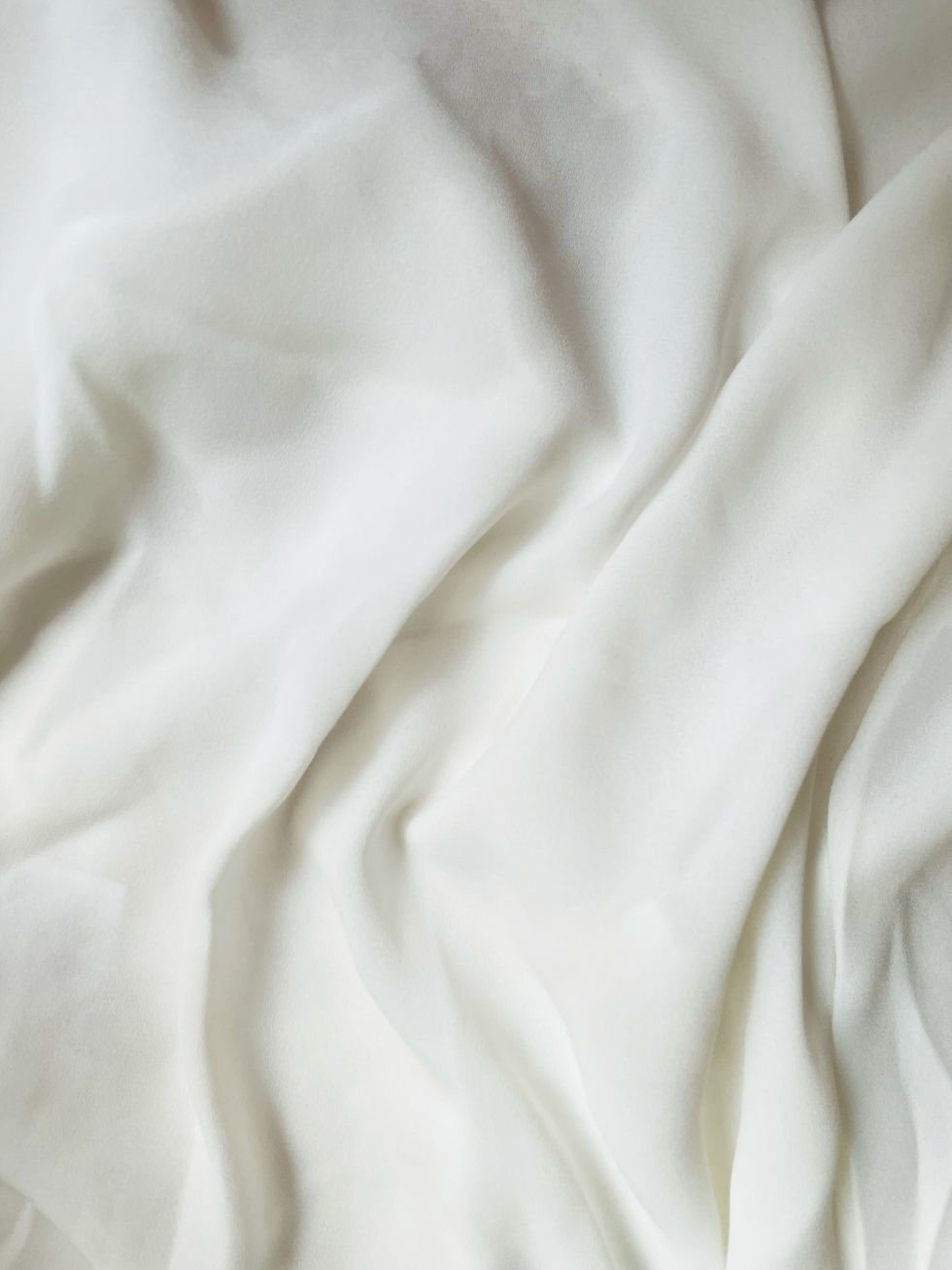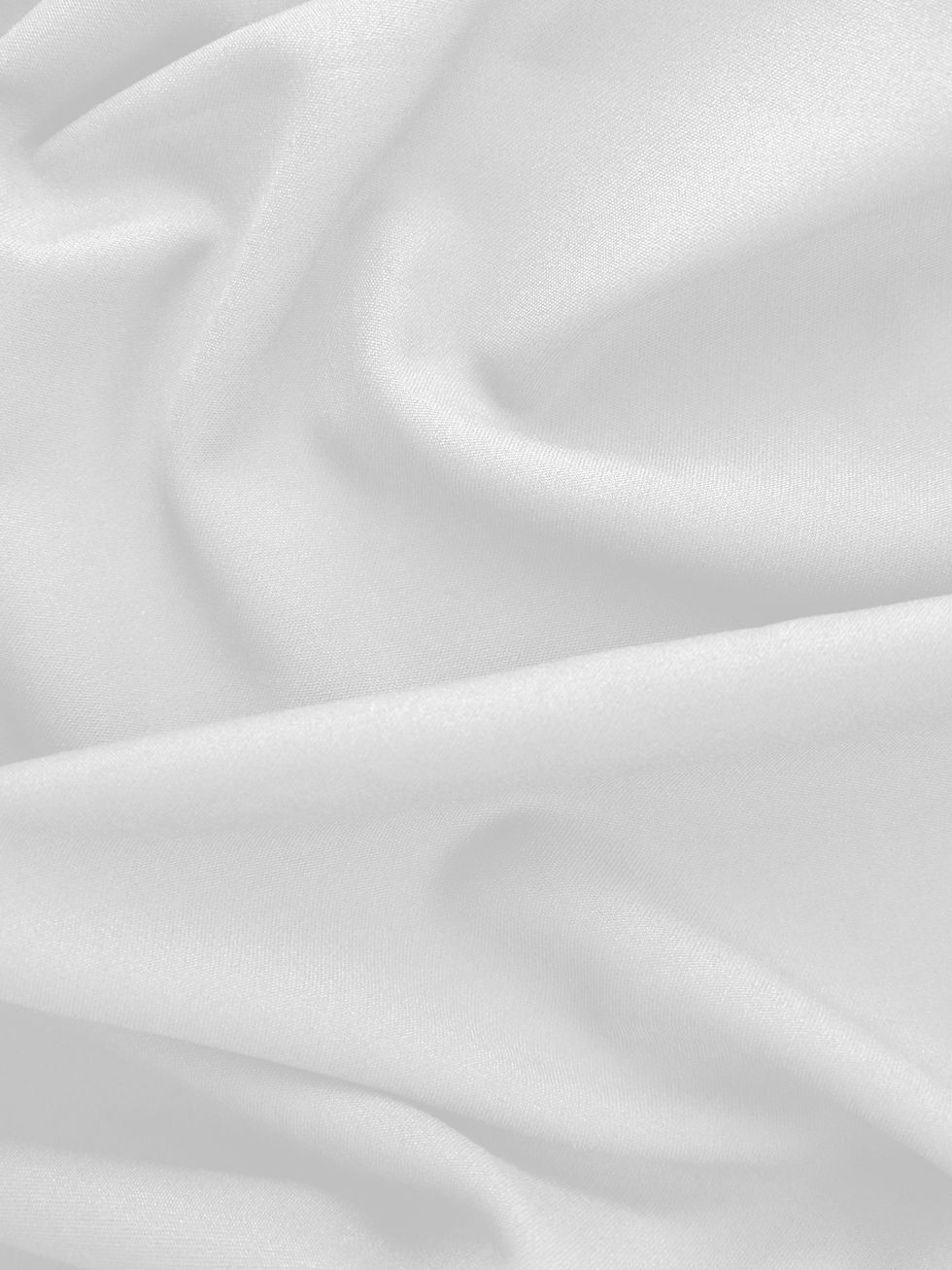Ultimate Guide to Muslin Fabric
By Fabric Base Inc. – Wholesale Fabric Manufacturer in Los Angeles
What Is Muslin Fabric?
Muslin is a lightweight, plain-woven cotton fabric valued for its breathability, softness, and adaptability. With roots tracing back to South Asia, muslin has long been used in both fashion and industrial contexts due to its understated appearance and functional simplicity.
Typically woven from fine yarns in a loose, open weave, muslin fabric ranges from sheer to medium weight. It is used widely for garment prototyping, linings, backdrops, and draping. Its versatility makes it essential in both creative and commercial industries.
At Fabric Base Inc., we manufacture and distribute wholesale muslin fabric to designers, brands, and builders of physical space who need reliable, natural cotton materials.
Types of Muslin Fabric
Not all muslin is the same. Different applications call for different weights and finishes. Common types include:
1. Cotton Muslin
The most traditional form, made from 100% cotton. It’s soft, breathable, and available in various weights.
2. Unbleached Muslin
Natural and untreated, this fabric has a soft off-white color. It’s often used for pattern testing and base layering due to its neutral appearance and organic feel.
3. Bleached Muslin
Washed and whitened for a clean, bright surface. Often used when a neutral or pristine base is needed, such as photography backdrops or installations.
4. Heavyweight Muslin
A denser weave with more weight and durability. Commonly used in theaters, for curtain liners, or when a more structured cotton base is needed.
5. Sheer Muslin
Thin and translucent, sheer muslin drapes easily. It’s well-suited for layering, soft panels, or lightweight display elements.
Muslin vs. Canvas: A Clear Comparison
Both muslin and canvas are plain-woven cotton fabrics, but they serve very different purposes.
Muslin is lightweight, soft, and breathable. It is chosen for its flexibility and fluidity. Because of its fine weave, it’s ideal for fashion mock-ups, linings, or delicate curtains.
Canvas is thick, heavy, and tightly woven. It’s chosen for its strength and ability to hold structure. Canvas is often used for upholstery, bags, awnings, or decorative structures where durability is the primary concern.
While canvas supports weight and wear, muslin supports movement and lightness. Muslin is often the fabric used early in the design process, while canvas is used when permanence is required.
Uses and Applications of Muslin Fabric
Muslin is widely used in both creative and technical environments. Its plain weave and adaptability make it a reliable foundation in many fields.
Fashion and Garment Design:
Toiles (test garments) – Used to develop and refine patterns before final production.
Interlinings – Adds breathability in suits, blazers, or lined garments.
Design mockups – Ideal for experimenting with new cuts or silhouettes.
Interiors and Installation:
Backdrops and drapery – Often used in photography, display booths, or theater.
Wall panels and gallery wraps – Acts as a neutral, smooth base for covered panels.
Room dividers – Bleached or natural muslin can be sewn into minimalist soft dividers.
Creative and Practical Use:
Textile painting and dyeing – Absorbs color well for experimentation.
Craft projects – Useful for stenciling, quilting, or trial construction.
Temporary coverings – Used to protect, hide, or create soft structures in a temporary space.
Care Instructions for Muslin Fabric
Cotton muslin is generally easy to care for, but like all natural textiles, benefits from gentle handling.
Prewash Before Use: Muslin may shrink after washing. Always wash before cutting to avoid sizing issues.
Wash in Cold or Warm Water: Use mild detergent. Avoid bleach unless necessary.
Tumble Dry on Low or Hang Dry: Excessive heat may shrink or weaken fibers.
Iron While Damp: A warm iron on the reverse side can smooth wrinkles effectively.
Store Folded and Covered: Protect from dust and light to maintain its clean appearance.
With proper care, muslin retains its softness and performance through multiple uses and wash cycles.
DIY and Design Ideas Using Muslin
Muslin is often the unsung material behind high-end design. Its simplicity invites transformation, while its affordability encourages exploration.
Practical Projects:
Prototype Garments – Designers use muslin to test every major collection.
Temporary Wall Draping – For exhibitions or seasonal installations.
Hand-Dyed Panels – For decorative or commercial use.
Curtains or Soft Light Diffusers – Especially in photography or interiors.
Textile Artwork – A reliable base for screen printing or hand-painting.
Muslin supports both experimental and structured design approaches—making it a favorite across disciplines.
Frequently Asked Questions (FAQ)
Is muslin fabric only used for testing?
While muslin is the standard for prototyping garments, it is also used in finished applications like backdrops, linings, and soft architectural elements.
Can muslin be dyed or painted?
Yes. Its plain weave and absorbent surface make it ideal for both dyeing and fabric painting.
Is muslin stronger than canvas?
No. Canvas is more durable and structured. Muslin is valued for breathability and softness, not strength.
Does muslin shrink?
Like most cotton fabrics, muslin will shrink when washed. Prewashing is essential before cutting or sewing.
Can muslin be used in interior design?
Yes. Muslin is often used in minimalist or organic interiors for soft draping, panels, and neutral visual texture.
Why Choose Muslin from Fabric Base Inc.?
As a wholesale manufacturer based in Los Angeles, Fabric Base Inc. supplies muslin fabrics by the roll in various weights and finishes. Whether for apparel prototyping, custom installations, or foundational work in interiors, our muslin supports professional outcomes.
We offer competitive pricing, consistent quality, and the experience to meet the needs of commercial studios, design houses, and production teams.
Contact Fabric Base Inc.
Fabric Base Inc.
📍 773 E 14th Pl, Los Angeles, CA 90021
📞 (213) 745-7688 | (213) 745-7918
✉️ info@fabricbases.com
🌐 www.fabricbases.com
Conclusion
Though modest in appearance, muslin fabric is indispensable in design, fashion, and construction. It is the base on which ideas are tested, refined, and sometimes even finished. Its softness, neutrality, and adaptability make it a key material in both creative process and understated presentation.
Explore wholesale cotton muslin fabrics from Fabric Base Inc. to bring thoughtful material choice to every stage of your design process.


















